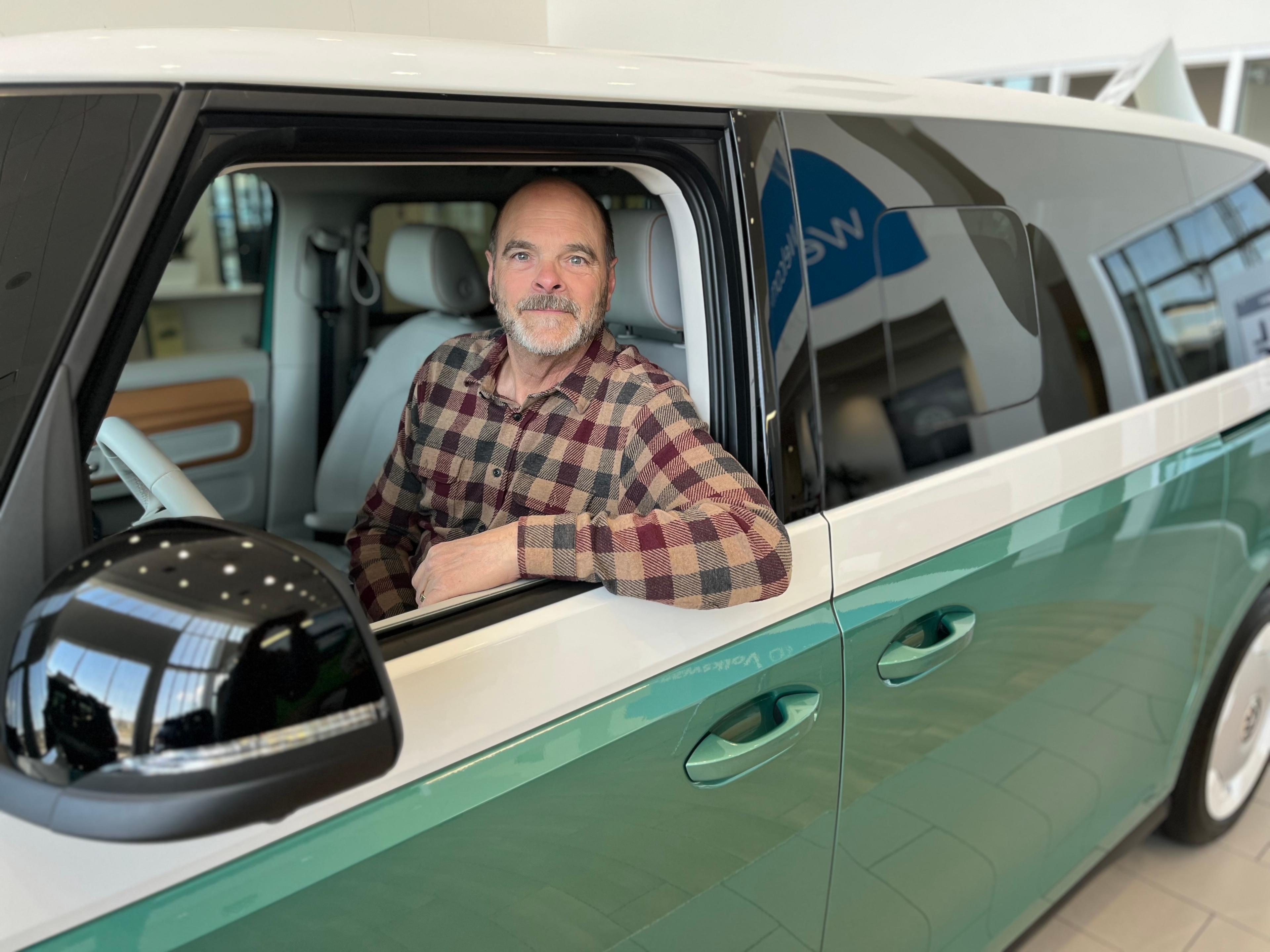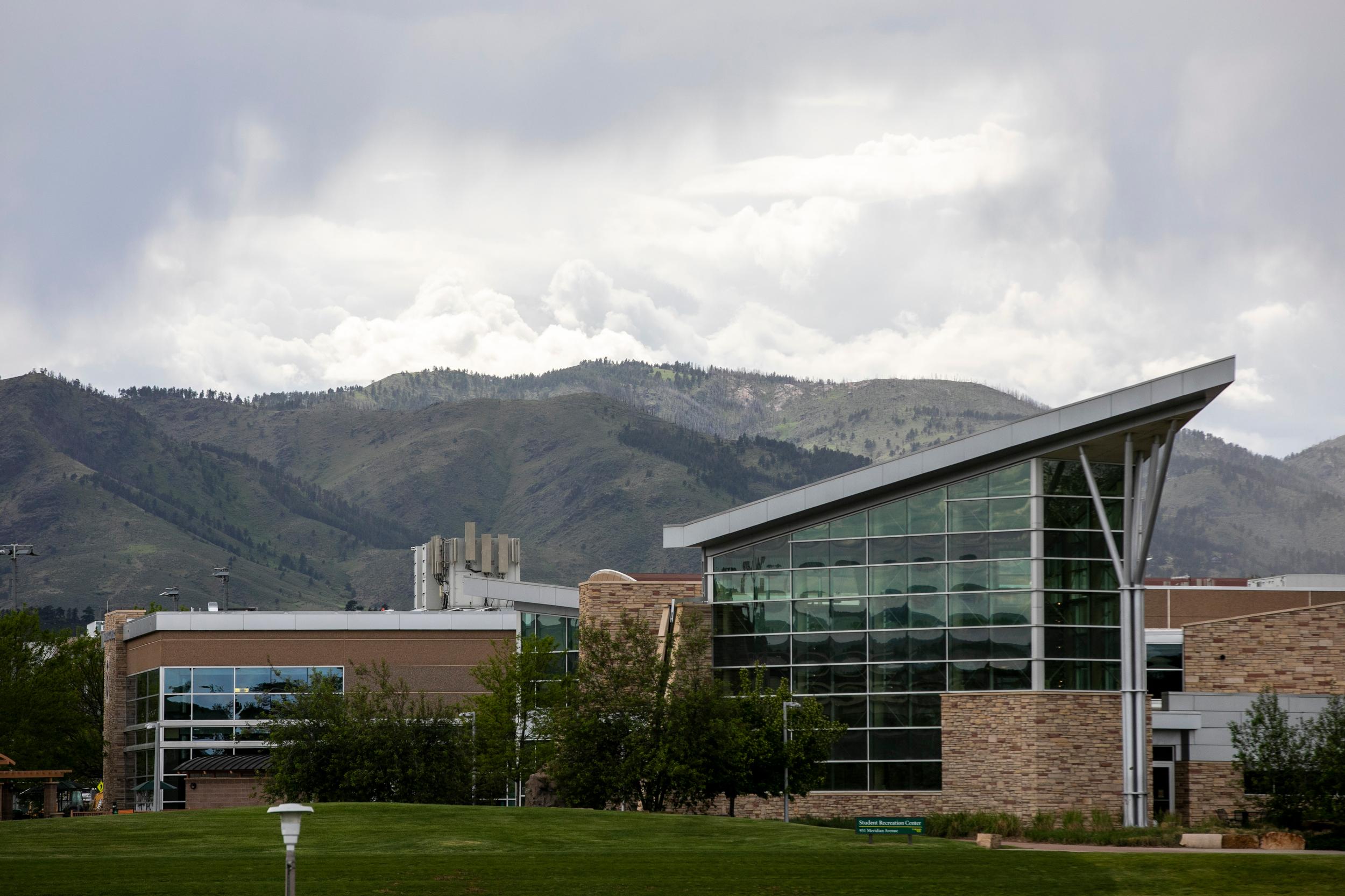Originally published on October 16, 2019 3:40 pm
Music is blaring and grills are firing up at a parking lot awash in navy blue and orange outside Empower Field at Mile High Stadium in Denver.
Todd Endicott of Lafayette stands outside an ambulance turned Broncos fan-mobile. He outfitted this orange and blue rig for tailgates. It’s plastered in life-size stickers of players, and the football team’s logos, vintage and new.
Endicott’s been a Broncos fan for decades, and said he’ll take his fandom to the next level by betting on the outcome of the games he tailgates. He says he uses a local bookie. During the football season he’ll put a couple thousand dollars down on a whole slew of match-ups.
“In the end, you probably win a hundred dollars if you're lucky,” he said. “It's all about the adrenaline during the game of knowing I’m either going to win or lose.”
There’s only one rule that enters his calculation: Never bet against the Broncos.
“Hell no,” he said. “You don't bet against the Broncos. That's like saying God doesn't exist.”
This November, Colorado voters will decide if sports fans like Endicott can take their wagers above board, tax the proceeds, and spend that new revenue on a long list of water projects in the state, everything from expanded reservoirs to urban conservation to agricultural efficiency.
The value of the illegal sports betting market in the U.S. has ranged from $67 billion to $150 billion.
Ever since the Colorado Water Plan passed in 2015, state leaders have pointed to its fundamental goal -- of closing the gap between future water supplies and demands -- as something necessary for economic and ecological stability.
But they never had a reliable way to pay for the water projects and conservation programs it outlined. Colorado lawmakers are hoping that will change with Proposition DD, a statewide ballot question they referred to voters this November.
Beginning in May 2020, the measure would allow existing casinos in the state to start taking no-limits bets on all kinds of sports, either in-person or online, and their net proceeds from those bets would be taxed at 10%. That money would go to the Colorado Water Conservation Board to be distributed as grants that align with the state’s water plan.
The U.S. Supreme Court gave states the green light to legalize sports gambling in spring of 2018. Since then a dozen have chosen to do so, though in some of those states revenues have come in well below their initial projections.
Early adopters of statewide sports gambling programs, like West Virginia, Mississippi, Pennsylvania and Rhode Island, have seen revenue lagging below initial projections.
Colorado’s expected sports gambling tax revenue is a moving target. The state’s blue book, the informational packet sent to voters prior to the election, says the additional tax revenue would bring in about $16 million a year for the first five years. A nonpartisan financial review of the question by the legislature’s research arm projected legal sports gambling tax revenue to range from $9.7 million to $15.2 million within the first couple years of legalization.
A few miles upstream of the stadium, Colorado House majority leader Alec Garnett stood along the banks of the South Platte River just off Sante Fe Drive, in a newly created park. Earlier this year, the Denver Democrat was in this same place to watch the bill that became Proposition DD -- a bill he sponsored -- get signed.
“I call this the potluck of all fisheries because you can catch trout and carp and bass and walleye, and it pretty much has everything right here,” Garnett said.
Garnett’s interest in the measure came more from his desire to legalize sports gambling and capture the potential tax revenue, not from finding funding sources for the water plan, he said.
“In a state like Colorado where we are constantly trying to find revenue to go towards key priorities that are woefully underfunded, I saw this as a way to generate some additional revenue that Colorado voters could get behind,” Garnett said.
In the last few election cycles, Colorado voters haven’t had much of an appetite for big new tax increases to fund transportation or education. Garnett hopes voters see Proposition DD as similar to the legalization of recreational marijuana -- taking a narrow, currently illegal practice and taxing it for public benefit.
“Water is an issue that brings Democrats and Republicans together. It brings farmers together with the conservation community,” he said.
But while the measure has gained the support of gaming interests, conservation groups, agricultural organizations and recreational outfitters, not everyone in the environmental community is on board.
“The proposition supports water projects,” said Fort Collins-based activist Gary Wockner. He created -- along with three others -- a small committee to rally against the ballot measure, called Coloradans for Climate Justice.
“The projects are completely undefined and not specified,” Wockner said. “And so this is really kind of a blank check.”
Wockner said he opposes any use of public tax dollars to pay for new dams or expanded ones, something the Colorado Water Plan calls for to shore up the state’s capacity to store water.
“Even though this for just the gamblers at the beginning, it sets a terrible precedent that climate damage should be paid for by the public,” Wockner said.
Other critiques of the measure include the fact that it allows no-limits betting on sports games, meaning people could lose a lot more money on an unwise bet. And that the $130,000 the measure would stash away for gambling addiction services is too low.
At the Broncos tailgate, Commerce City school administrator Chris Duran said he already bets legally on sports, during multiple trips to Las Vegas each year. If Proposition DD passes he said he’ll be more likely to stay in Colorado to bet.
“We got casinos,” Duran said. “Why not bring sports betting attached to it? We’re already halfway there. Let's finish the game.”
With so much media attention focused on the election next year, Duran says he hadn’t heard about the one happening next month. Same with the 10 other Broncos fans we interviewed at the game, meaning the measure’s biggest hurdle might just be a lack of knowledge it even exists.
“I work in education, I would love for the money to go to education,” Duran said. “But I also see from an economic and ecosystem standpoint, absolutely I would support it. One hundred percent. I think it's a great investment.
“Water is living, water is survival, so we need it.”
Ballots are being sent out to voters now and should be returned to county clerks throughout the state by Nov. 5.
This story is part of a project covering the Colorado River, produced by KUNC and supported through a Walton Family Foundation grant. KUNC is solely responsible for its editorial content.
Copyright 2019 KUNC. To see more, visit KUNC.








